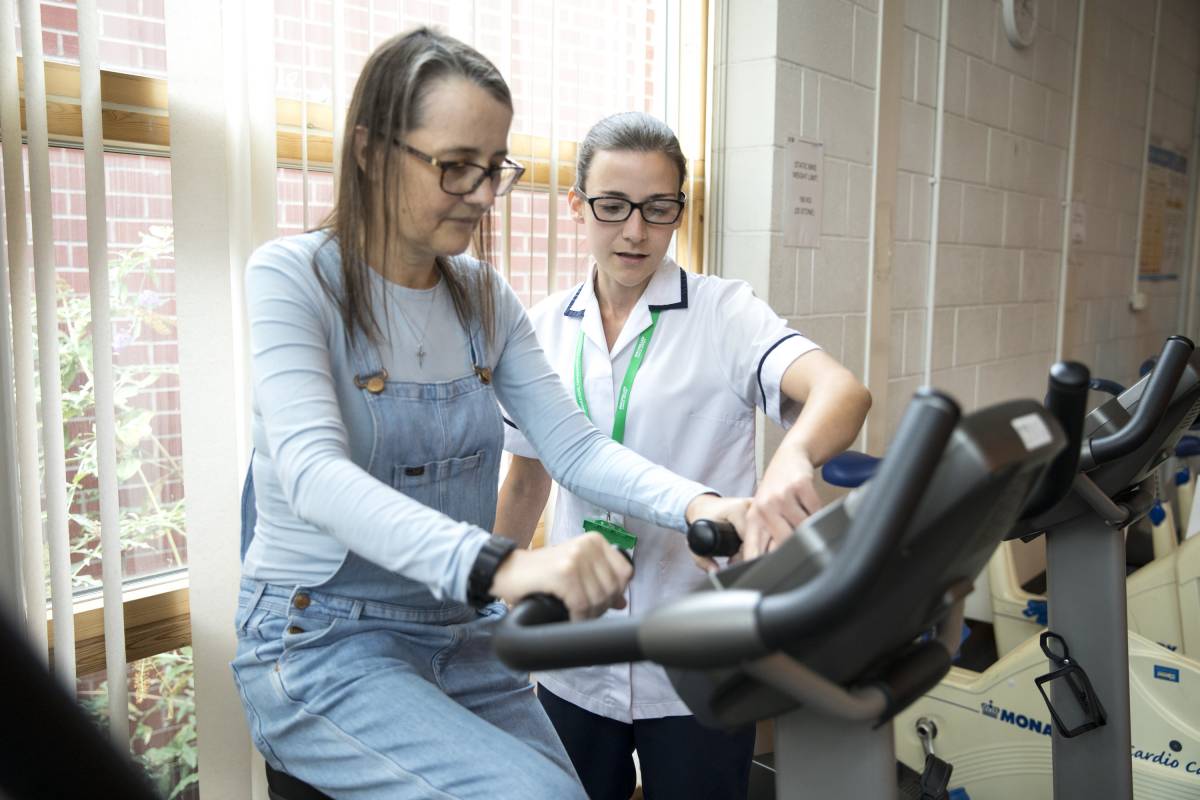Physiotherapy staff thanked for contributing to 'how to' guide produced by Macmillan Cancer Support
Macmillan Cancer Support and Health Education England (HEE) have thanked physiotherapy assistant Carrie Beasley and at least four physiotherapists for helping to create a 118-page 'how to' guide on developing personalised prehabilitation and rehabilitation programmes for people with cancer.
The expression of thanks appears in acknowledgements at the end of the 118-page publication, which is titled Designing, developing, and funding prehabilitation and rehabilitation: A how to guide.
The PRosPer (Prehabilitation, Rehabilitation and Personalised Care) project – which is funded by HEE and managed by Macmillan Cancer Support – oversaw the guide’s production. Physiotherapist Karen Robb sits on the PRosPer guide steering group. Dr Robb is programme lead for personalised care and end of life care at the North East London Cancer Alliance.

At least four England-based physiotherapists contributed case studies to the guide (more may have done so, in this and other areas, but not have been identified as physios in their job titles). They are Kerry Archer, a programme lead with Active Against Cancer, Harrogate and District NHS Trust, Manisha Cook, a specialist palliative care physiotherapist at St Francis Hospice, Romford, Essex, and Catherine Hegarty, a physiotherapist at St Joseph's Hospice in Hackney, east London.
Physiotherapy assistant Carrie Beasley also received thanks for her contribution to the English case studies. She is a navigator for cancer prehabilitation and rehabilitation with Somerset NHS Trust.
Scottish prehab case study
Was having telephone contact with a physiotherapist helpful? Definitely. Every couple of weeks someone would phone and ask how I was. It was good and it made me do it ... Just shows you, even without face-to-face, you can be active with support [John, a HARP patient]
Jane Holt, physiotherapy team lead with the Ayrshire and Arran-based Healthy and Active Rehabilitation Programme (HARP), is thanked for contributing to the Scottish case studies.
This case study, which includes a link to watch a video featuring Ms Holt recorded in Crosshouse, near Kilmarnock, focuses on a prehabilitation programme for people with gastrointestinal cancers. A patient called John, whose regular hour-long HARP classes were interrupted during the lockdown caused by the Covid-19 pandemic, is interviewed by Ms Holt, who asks him to give feedback on his care. He explains that he gave up smoking, exercised more and drank less once he was signed up for prehab support.
Ms Holt asks: ‘Was having telephone contact with a physiotherapist helpful?’ John relies: ‘Definitely. Every couple of weeks someone would phone and ask how I was. It was good and it made me do it. One time I was at my sister-in-law’s and Jane phoned she had me doing a sit-to-stand on the stairs. My wife timed me. Just shows you, even without face-to-face, you can be active with support.’
The importance of hope
Ms Holt adds: ‘What message do you have for others who may be faced with your diagnosis in the future?’ John responds: ‘Have hope, let it sink in, talk about it. Find out at much as you can. When I was told I was terminal, I felt negative, but just take it day-to-day, and keep thinking you’re going to be here the next day.
'Don’t sit brooding, just keep doing things you enjoy. Or go for a walk, because it does clear your head. All you can do is enjoy the quality of life you can just now. You’ve just got to keep positive.’
To view Jane Holt's video, visit: https://vimeo.com/684579766
English rehab case study
Physiotherapy assistant Carrie Beasley is featured in a case study in the rehabilitation section of the guide. She works with Lisa Durrant, a Macmillan consultant therapeutic radiographer, in a project called ‘Beacon Plungers’, which offers rehab to people in Somerset who have had breast radiography.
Groups of patients who had received treatment for cancer and lymphoedema were taught rehabilitation exercises, initially in the privacy of the hospital hydrotherapy pool, for three weekly 40-minute sessions, Ms Beasley and Ms Durrrant note. ‘Following this, they are invited to attend six private sessions at a local public pool, to consolidate their knowledge and interact with peers. Hormone therapy and sexual health workshops have been held when the pool was shut for repairs.’
The patients were aged from 37 to 86 years and most reported having shoulder problems and frequent pain (79 per cent and 76 per cent, respectively). ‘All showed an improvement in range of movement of the shoulder following hydrotherapy. This was sustained or improved at the public pool (14 patients),’ Ms Beasley and Ms Durrant report in their case study.
The publication is titled Designing, developing, and funding prehabilitation and rehabilitation: A how to guide. Copies can be downloaded here: https://www.e-lfh.org.uk/wp-content/uploads/2022/04/Macmillan_Toolkit_2021_V9Reduced.pdf
To find out more about the PRosPer programme (including e-Learning for Health), visit: https://www.e-lfh.org.uk/programmes/prosper
Author: Ian A McMillan













